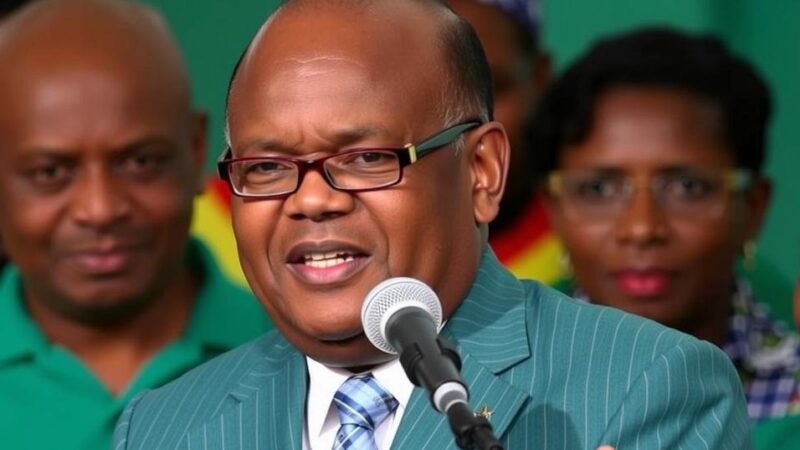The FPÖ has achieved a historic electoral victory, claiming 28.8% of the vote, marking it as the first post-war party established by former Nazis to win national elections. Herbert Kickl’s leadership and the party’s ability to harness public discontent significantly contributed to this outcome. As the FPÖ solidifies its parliamentary presence, potential coalition dynamics and the role of traditional parties remain uncertain amid rising concerns over authoritarian political trends in Europe.
The recent electoral triumph of the radical right Freedom Party of Austria (FPÖ) fundamentally alters the political landscape within the nation. Under the leadership of Herbert Kickl, the FPÖ achieved a historic milestone by capturing 28.8% of the vote, the highest percentage ever attained by the party since its establishment in 1956, and surpassing the previous record set by its founder Jörg Haider in 1999. This unprecedented success marks the first instance in post-war Austrian history that a party founded by former Nazis has emerged victorious in national parliamentary elections. Kickl, an ideologue with familial ties to Nazism, has proposed to become Austria’s ‘volkskanzler’ or ‘people’s chancellor’, a title steeped in Nazi overtones.
The rise of the FPÖ is symptomatic of a broader wave of disillusionment with traditional political parties in Europe, as evidenced by the decline in electoral support for the historically dominant ÖVP (People’s Party) and SPÖ (Social Democratic Party), which collectively dropped from 94.4% in 1945 to just 47.4% in recent elections. Economic discontent and dissatisfaction with pandemic management have played pivotal roles in garnering public support for the FPÖ. In addition, the party’s efforts to appeal to Turkish-origin voters failed to gain traction, showcasing the complexities within Austria’s evolving demographics and political preferences. The electoral results further indicate a significant shift in rural areas, where the FPÖ capitalized on deficits suffered by the ÖVP, contrasting sharply with urban support for the SPÖ.
In conclusion, the FPÖ’s electoral success signals a notable shift toward the far-right in Austrian politics, breeding apprehension regarding their potential influence. Despite their significant parliamentary presence, coalition-building may prove challenging due to the ÖVP’s declared unwillingness to partner with the FPÖ, alongside the federal president’s determination to uphold liberal democratic values. The path forward for Austrian politics will ultimately be shaped by traditional parties navigating the complexities of coalition dynamics while resisting the populist tide embodied by the FPÖ. It is imperative for political actors to craft arrangements that uphold democratic integrity and counter the authoritarian tendencies emerging in contemporary political discourse.
Original Source: www.theguardian.com







